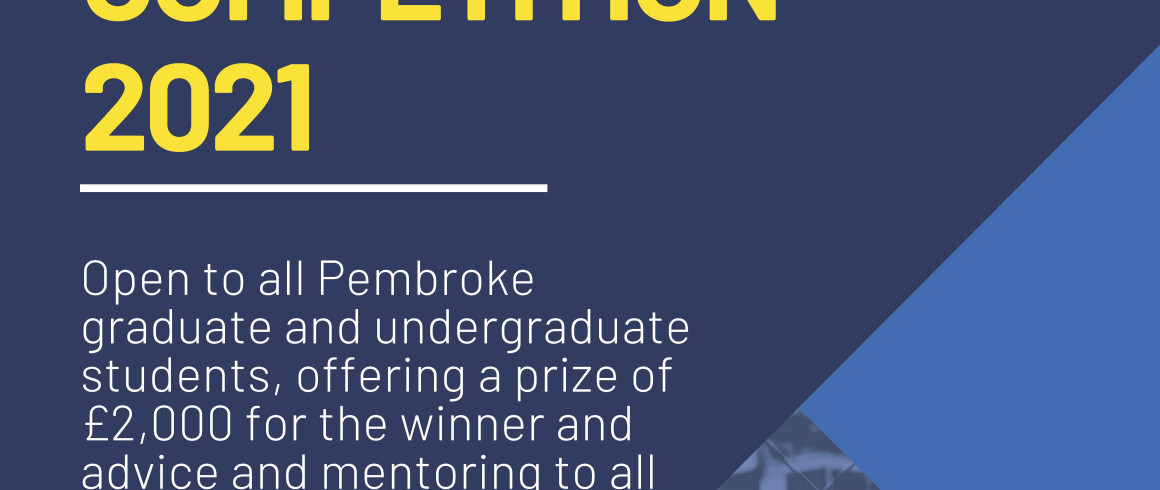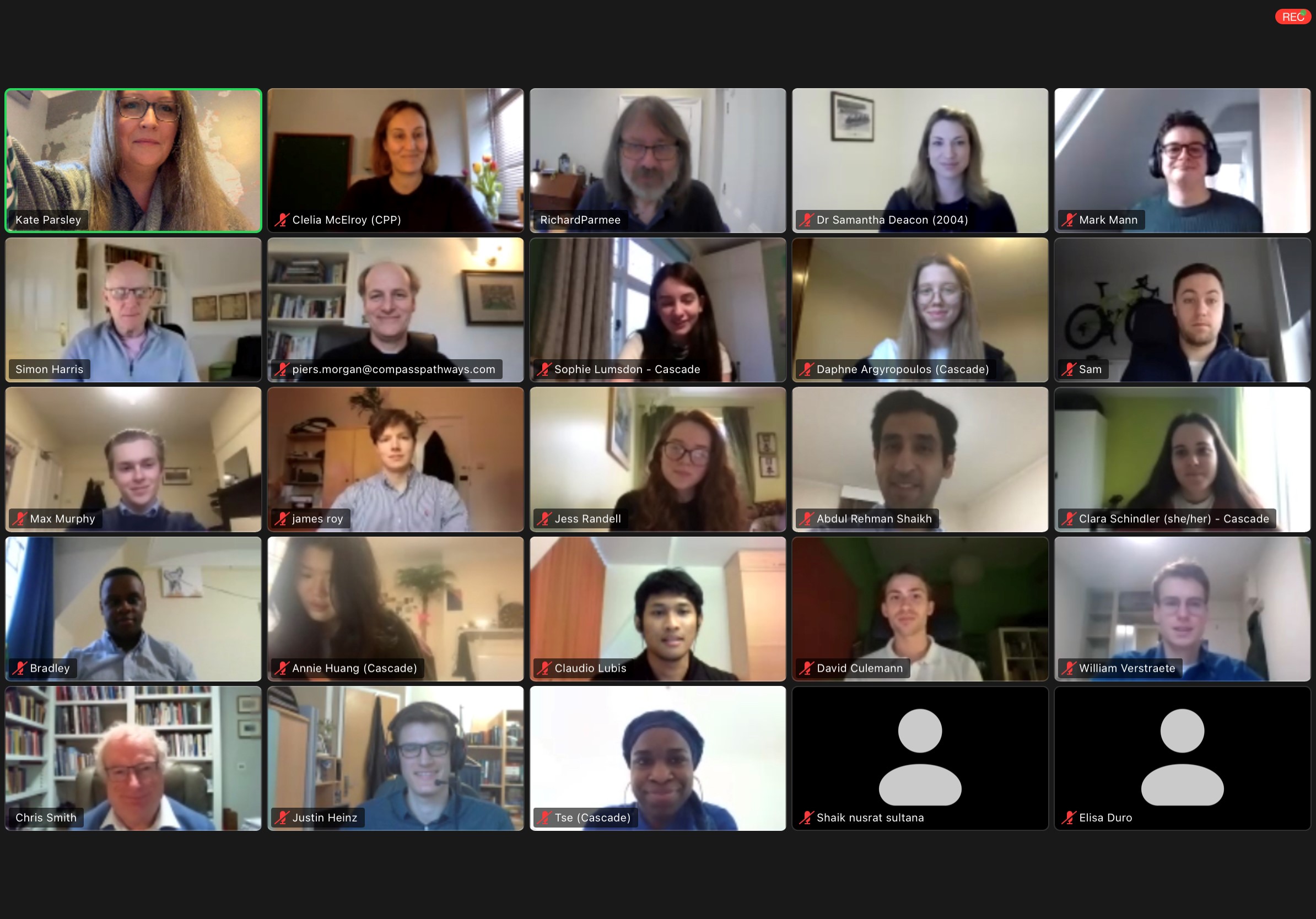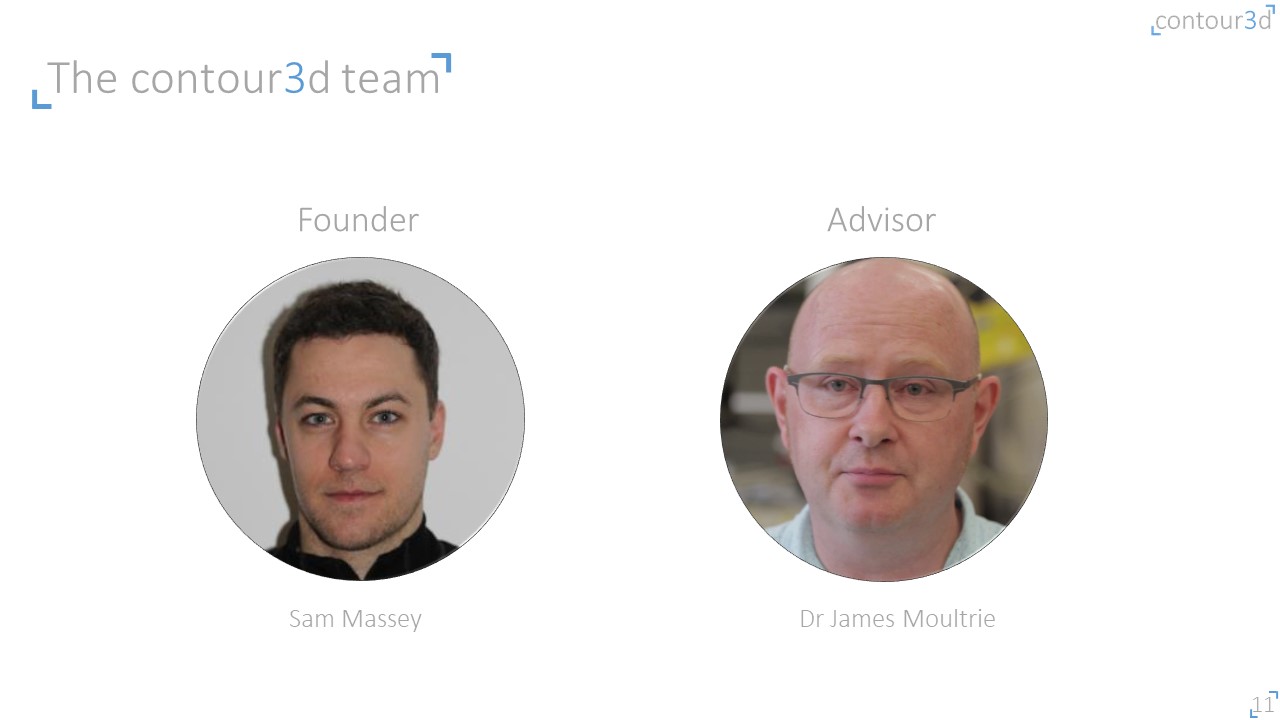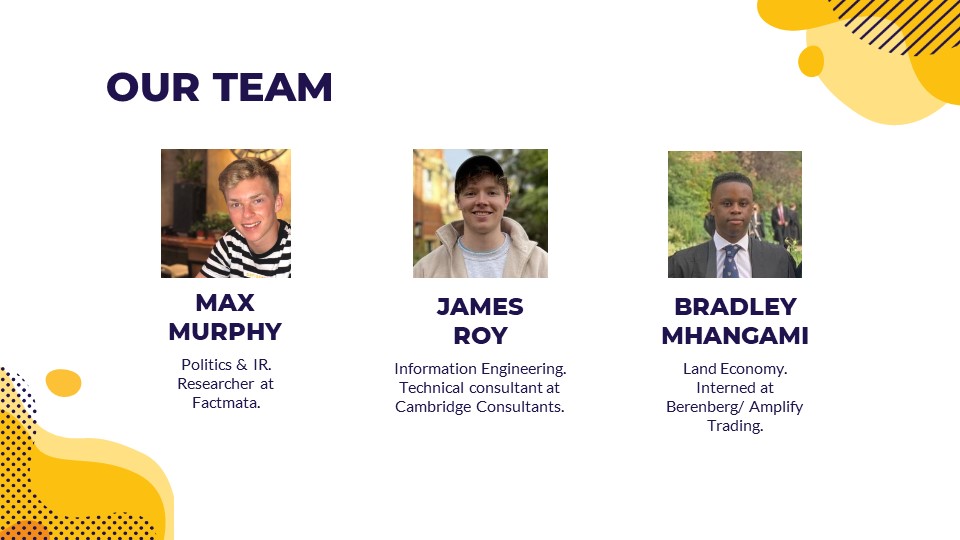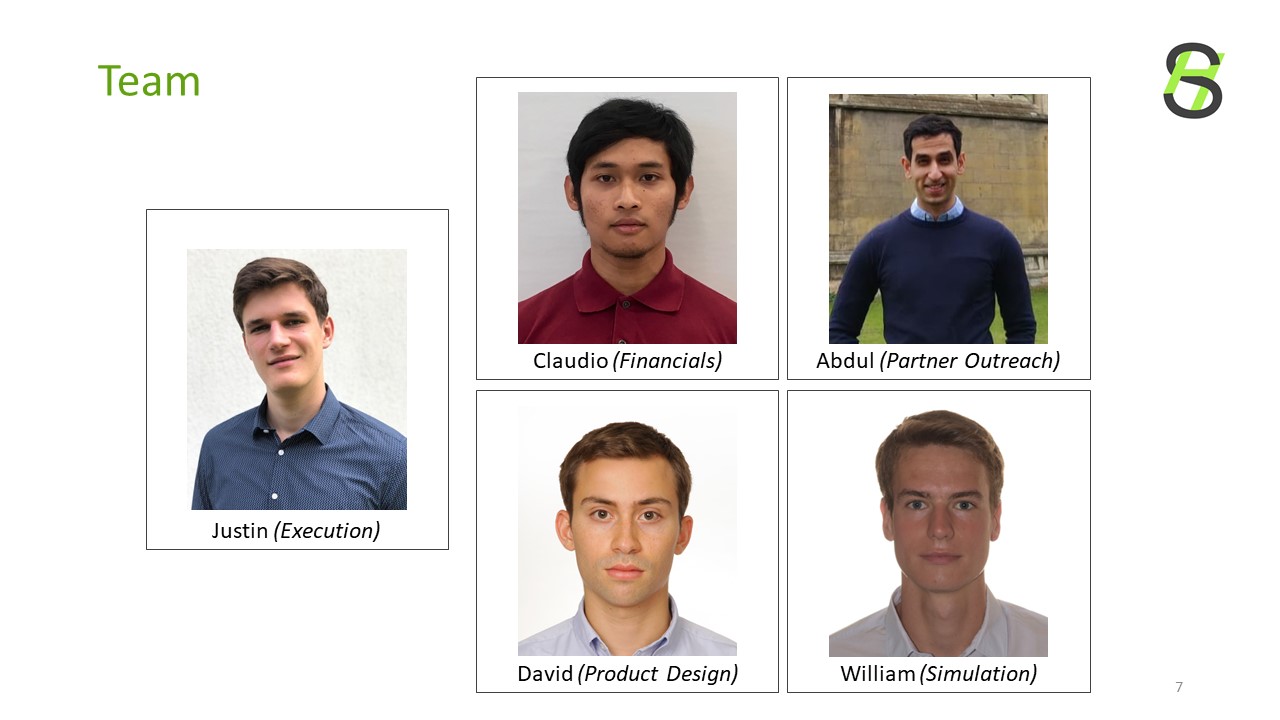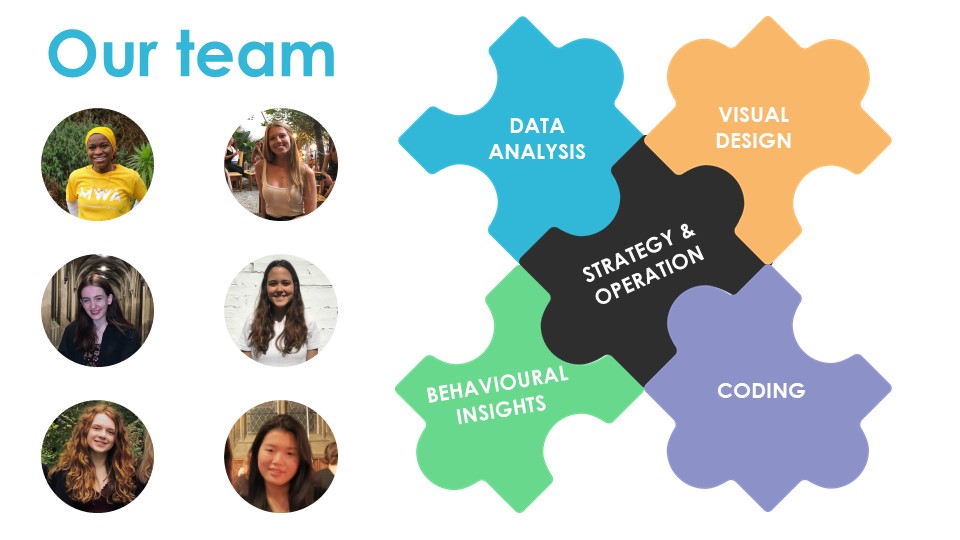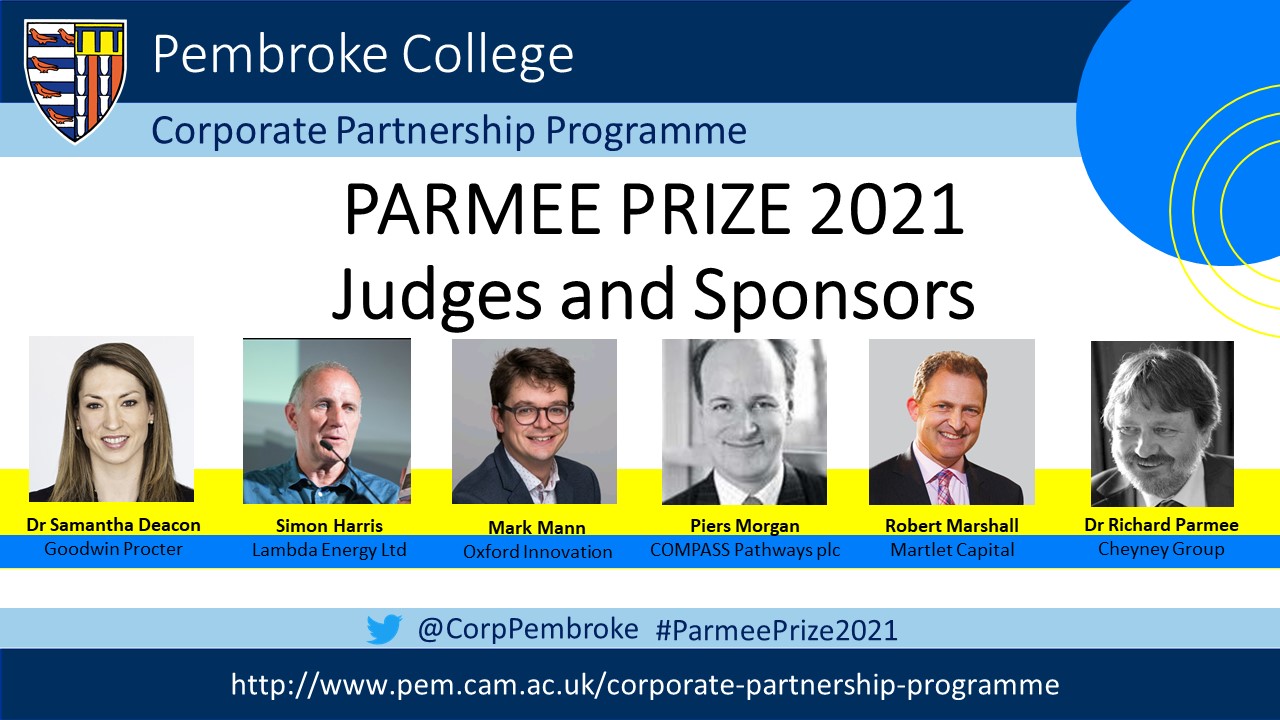Parmee Prize 2021
Last year the Parmee Prize was our last event held in person, just one week before Covid-19 was declared a pandemic. Even so, we had hoped that our next annual entrepreneurship competition would be in person, but again we adapted and moved the event online. And we were blown away yet again by the quality of the applications and the presentations, and the engagement from our panel and community. As one of our panellists remarked afterwards: ‘I think we’ve got the hang of this digital thing now’. We do hope that next year the students will be able to present their business plans in person, but we are proud that the move to a virtual world has not compromised the competition in any way.
The Master, Lord Chris Smith, chaired and introduced the panel and the competition, including thanking our sponsors Dr Richard Parmee (1970) and Robert Marshall (1981). As usual, the panel was made up of Pembroke alumni with experience in entrepreneurship and who also support the applicants via mentorship – Dr Samantha Deacon (2004), Simon Harris (1969), Dr Mark Mann (1999), and Piers Morgan (1985). Mark also shared an image of himself as a young entrant in the first competition in 2007 - where he finished second!
First to present was Sam Massey, our only sole entrant, with his company Contour3D – a new technology for more accurate 3D printing that has various applications, his solution was to both improve the mechanical design and the machine code. Combining these for greater accuracy has several benefits and might be best applied for food or biotechnology applications.
Our next pitch was from James Roy, Max Murphy and Bradley Mhangami, a team of Pembroke students with their company Greenlist. Max and Bradley also entered the competition last year with a different team and company – but loved the process so much they entered again. The Greenlist team all took turns in presenting the project – a ranking algorithm that estimates the relative carbon costs of products to sell for e-commerce sites, enabling a customer to identify the lowest carbon-producing product.
We then heard from Justin Heinz from Pembroke, supported by a team of students from other Colleges, with the company SolarHybrid. Their concept was a hybrid stove – using a solar reflector to concentrate the sun’s rays to heat a biomass boiler for cooking in developing countries. This reduces the amount of biomass used for cooking, providing time and money savings for users, is fully renewable and reduces particle pollution.
Finally, an all-female team Cascade, led by Sophie Lumsden from Pembroke introduced themselves and started with a question – how can an individual make sure that all of the decisions we make every day are the right ones for the environment? Cascade intends to make sustainability easy and intuitive and take the complicated data gathering and decision-making burden off the individual. They propose to use data analysis and behavioural insights to develop an App that suggests practical actions for users and also measures their impact.
After their pitches each team faced probing questions from the panel that challenged many aspects of their business plans. The finalists mounted a robust defence of their decisions and the factors they had considered when developing their technologies. After all the business plans had been presented, the judges asked a few final questions before retiring to a breakout room to choose a winner while the audience, including the Master, were also able to ask further difficult questions of the finalists.
After much deliberation (and a few behind the scenes technical malfunctions!) the judges returned and Simon announced that the decision had been extremely tight but that the winner was Justin Heinz’s team with SolarHybrid. Simon challenged Justin to have a working prototype on the College lawn in the summer. The judges remarked on the high quality of all of the presentations, especially in the current circumstances, and in particular gave a special mention to Cascade. Mentorship and connection-making was offered to all of the finalists, including from members of the audience, and the Master encouraged all of the entrants to continue with their ideas.
2021 is the Corporate Partnership Programme’s 25th year and we have chosen to theme our activities on climate rescue. Although we did not theme the Parmee Prize (in order to not remove the possibility for everyone to apply) we were thrilled that the majority of our finalists presented ideas that addressed the climate crisis.
Richard sees entrepreneurship as a genetic abnormality and hopes that the competition helps him to find more people like him – I think we can safely say that we found a few more mutants with the entrepreneurship gene and we look forward to catching up with the panel and finalists in person later in the year and seeing how the mentorship and funding provided through the Parmee Prize has developed their business plans.
